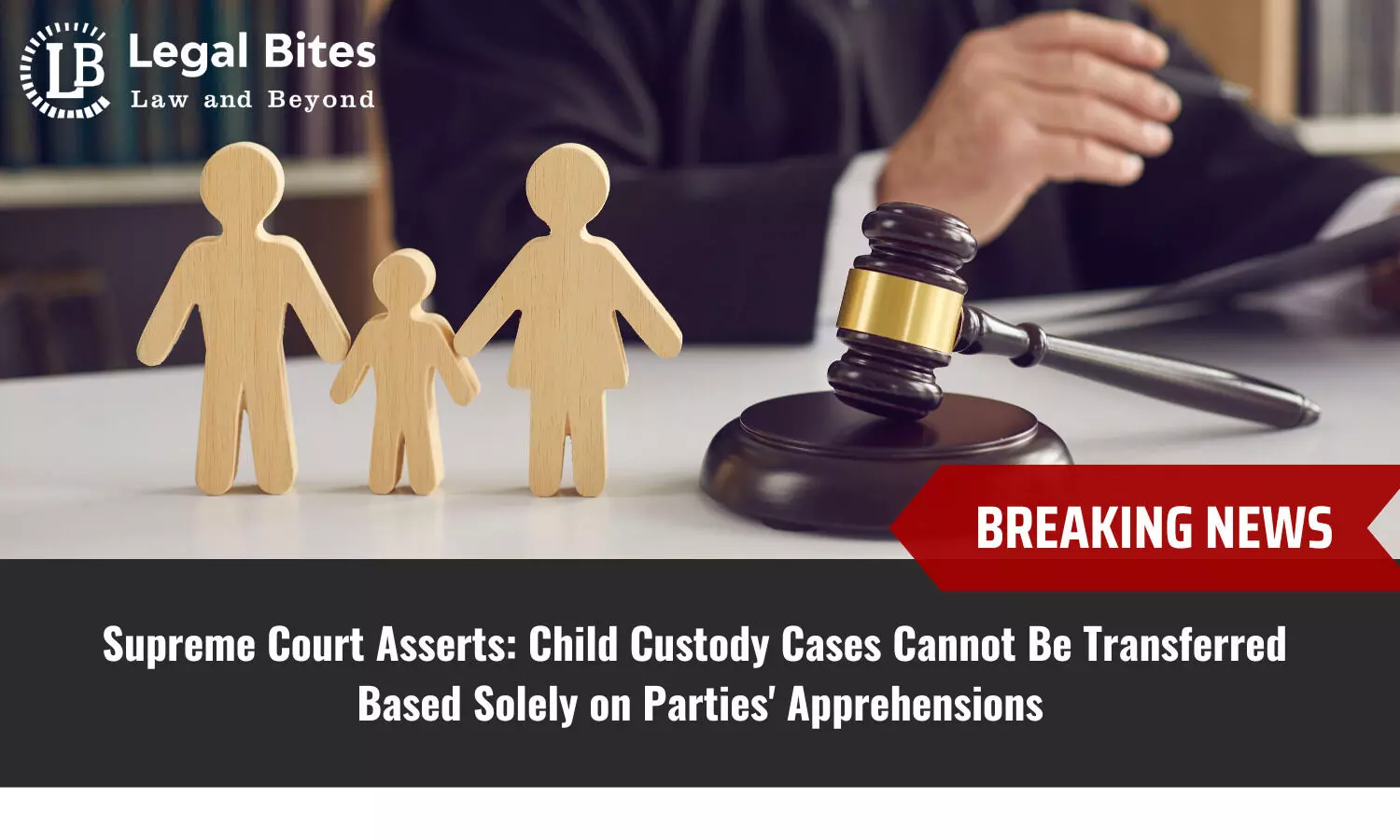Supreme Court Asserts: Child Custody Cases Cannot Be Transferred Based Solely on Parties' Apprehensions
The Supreme Court underscored that in child custody cases governed by the Guardians and Wards Act, the transfer of proceedings from one court to another should not be granted solely based on the apprehensions of the parties involved.;

Supreme Court Asserts: Child Custody Cases Cannot Be Transferred Based Solely on Parties' Apprehensions
The Supreme Court recently underscored that in child custody cases governed by the Guardians and Wards Act, the transfer of proceedings from one court to another should not be granted solely based on the apprehensions of the parties involved. This pronouncement came in response to a plea filed by a wife requesting the transfer of her child custody case from Chandigarh to Delhi.
Justice Dipankar Datta, a single judge, stressed that the welfare and interests of the child take precedence in such matters. The court's order, dated September 22, stated,
"No order for transfer ought to be passed on mere assumptions and apprehensions of the parties. The interest of the child being of paramount importance, at this stage, this Court finds no reason to grant the prayer for transfer."
The case revolved around a child custody dispute pending in Chandigarh. The husband had initiated legal proceedings under Section 25 of the Guardians and Wards Act, seeking custody of their son. Meanwhile, the wife was employed in Panchkula, Haryana, and was residing there with their son. However, she sought to move the child custody case to Delhi due to the nature of her transferable job and the impending possibility of her relocation out of Haryana. Additionally, there was an ongoing matrimonial case between the wife and her estranged husband in Delhi.
The husband opposed the transfer request, arguing that relocating the case to Delhi would place the child over 250 kilometres away from his current residence.
The Supreme Court, after careful consideration, declined to transfer the case away from Chandigarh. The Court's reasoning was based on the fact that, at present, Panchkula remained the wife's workplace and was also confirmed as her residence, as well as the residence of the child.
Consequently, the transfer petition was dismissed, with representation in court by advocates Akanksha Sisodia and Pulkit Tare for the wife, and advocates Setu Niket, Esha Mazumdar, Azmat Hayat Amanullah, and Chaitanya Kamal for the husband.


